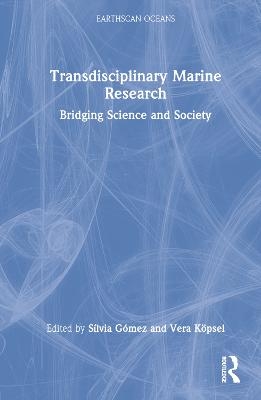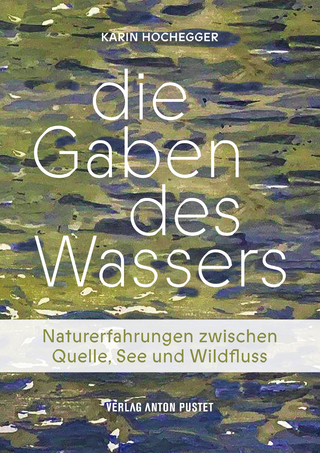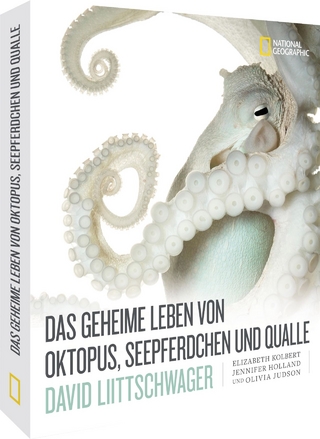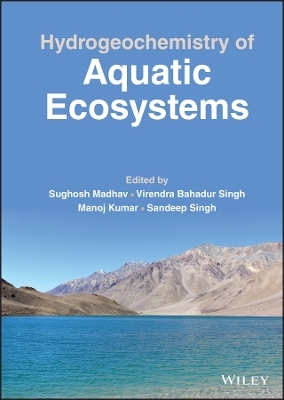
Transdisciplinary Marine Research
Routledge (Verlag)
978-1-032-31760-1 (ISBN)
The marine sciences play a vital role in producing and providing the knowledge needed for a transition towards ocean sustainability. With a multitude of actors involved in using, exploiting, and safeguarding the seas, however, this task cannot be solved by science alone. Transdisciplinary research is needed, bringing together scientists and all other actors of society to jointly co-produce the knowledge and innovations that we so urgently need. In this context, this book examines and answers key questions at the forefront of transdisciplinary marine research: How can we provide approaches that integrate marine biodiversity and social systems in an appropriate relationship? What methodologies are most suitable to engage stakeholders in participatory processes providing new knowledge and tools for co-designing solutions with balanced socio-ecological embeddedness? How do we best integrate scientific with lay and local knowledge, and how are diverse knowledges valued in engagement activities? How can we reconcile socio-economic activities and the often divergent values attached to them to provide ethical principles for fair and equitable policy decisions? The book addresses these questions by combining an array of chapters about new theoretical approaches to transdisciplinary marine research, methodological considerations, as well as case studies from the nexus of the research and practices of engagement with a variety of stakeholder groups across the globe.
This book will be of great interest to students and scholars studying marine science and ocean research across a wide range of disciplines, including marine biology, environmental governance and policy, ocean resource management, oceanography, environmental anthropology, human geography and sustainability. It will also be of interest to those looking to build a greater understanding of transdisciplinary research and knowledge co-production, and practitioners working alongside academics.
‘Chapter 1 and Chapter 8 of this book is available for free in PDF format as Open Access from the individual product page at www.routledge.com. It has been made available under a Creative Commons Attribution-Non Commercial-No Derivatives 4.0 license.’
Sílvia Gómez is Associate Professor at the Universitat Autònoma de Barcelona, Spain. She is a social anthropologist whose research focuses on marine science from a transdisciplinary approach. Vera Köpsel is Postdoctoral Researcher in the Institute for Marine Ecosystem and Fisheries Science at the University of Hamburg, Germany. Whilst her background is in human geography, she now focuses her work on marine social science and exchange with non-academic actors.
Part 1: THEORETICAL AND CONCEPTUAL APPROACHES 1. The Multifaceted Picture of Transdisciplinarity in Marine Research 2. Empty Oceans – Humanizing Ocean and Seascapes for Building Transdisciplinary Knowledge and Practice 3. Co-Production of Knowledge as Production of Space: How We All Give Meaning to the Sea 4. Transformation Through Participation: Democratising the Human-Ocean Relationship
Part 2: METHODS AND PERSPECTIVES 5. Using Bayesian Belief Networks and Participatory Action Research to Improve Stakeholder Engagement 6. Assessing the ‘Professionalisation’ of Marine Citizen Science 7. The Power and Precarity of Knowledge Co-Production: A Case Study of Skkijânginnaniattut Nunatsiavut Sivunitsangit (The Sustainable Nunatsiavut Futures Project). 8. Stakeholders’ Normative Notions of Sustainability. A Survey for the Co-design of a Sustainable Future of the Western Baltic Fishery System Part 3: INSIGHTS FROM THE CASE STUDIES 9. Small-scale fishers’ knowledge for ocean sustainability: an ethnography in Setúbal, Portugal 10. Characterization and vulnerabilities of fisheries within a coastal lagoon in Uruguay: a participatory approach 11. Dialogue of knowledge for the assessment of the impacts of the oil spill disaster on the Brazilian coast in 2019 12. The Marine Reserve of fishing interest at Cape Roche (Conil, Spain): Transdisciplinarity and academic challenges of a conflictive process Part 4: WAYS FORWARD FOR TRANSDISCIPLINARY OCEAN SCIENCE AND MANAGEMENT 13. Aiming for the next level of transdisciplinary marine research Part 5: CLOSING REMARKS 14. Towards a new culture of reflexive and diverse marine transdisciplinarity
| Erscheinungsdatum | 24.08.2022 |
|---|---|
| Reihe/Serie | Earthscan Oceans |
| Zusatzinfo | 14 Tables, black and white; 17 Line drawings, black and white; 23 Halftones, black and white; 40 Illustrations, black and white |
| Verlagsort | London |
| Sprache | englisch |
| Maße | 156 x 234 mm |
| Gewicht | 800 g |
| Themenwelt | Naturwissenschaften ► Biologie ► Limnologie / Meeresbiologie |
| Naturwissenschaften ► Biologie ► Ökologie / Naturschutz | |
| Naturwissenschaften ► Geowissenschaften ► Hydrologie / Ozeanografie | |
| Weitere Fachgebiete ► Land- / Forstwirtschaft / Fischerei | |
| ISBN-10 | 1-032-31760-4 / 1032317604 |
| ISBN-13 | 978-1-032-31760-1 / 9781032317601 |
| Zustand | Neuware |
| Haben Sie eine Frage zum Produkt? |
aus dem Bereich


